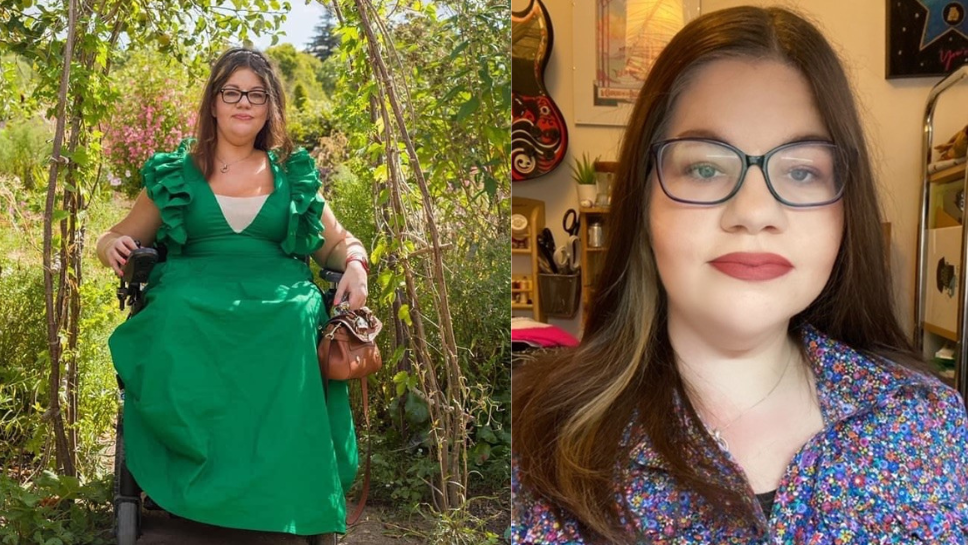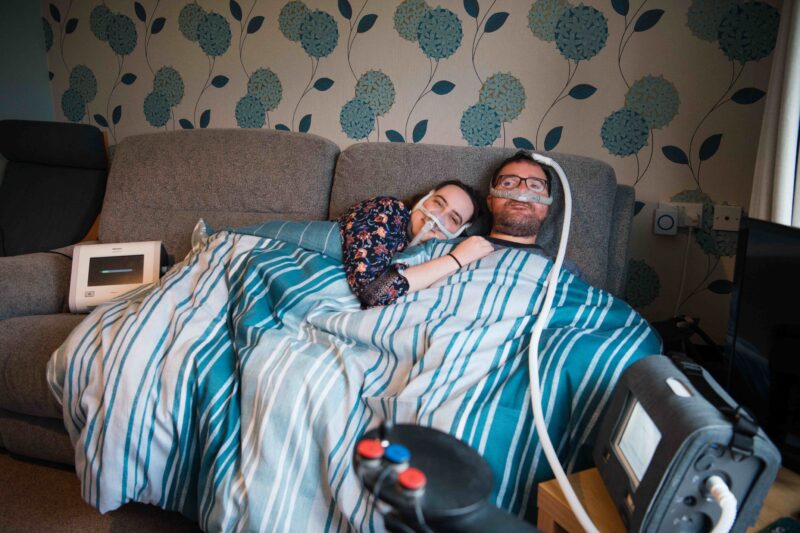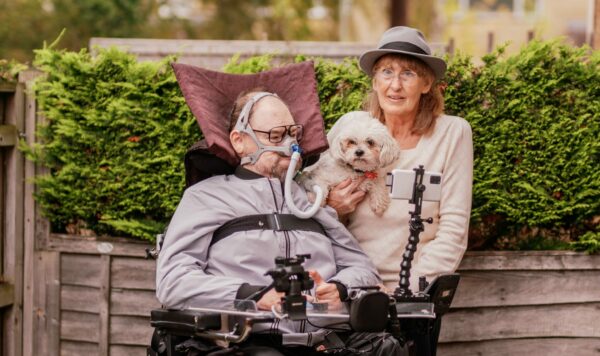Sara is a 37-year-old Diversity and Inclusion Officer who lives with her husband in Wickford, Essex. As someone with muscular dystrophy, Sara has often had to pay out of pocket for essential amenities – from suitable wheelchairs to showering safely in her own home. Now the rising cost of living has Sara worried about what the future holds.
“Sometimes, having the heating on is the only way I can stop my muscles hurting – so what happens when people like me can’t afford the energy bill?”

I have rigid spine syndrome muscular dystrophy (RSMD). My condition mostly affects my back, neck, legs and arms. I can’t walk easily and when I do, I can lose my balance.
I’ve had muscular dystrophy since birth and nothing has ever stopped me doing what I want to do. But I have additional needs which means it costs me more money just to be able to live independently and safely.
“For two years, I had to wash my hair over the kitchen sink”
Before we had our wet room installed, I had to wash my hair over the kitchen sink for years. According to the local Occupational Therapy team, a number of urgent changes needed to be made to the bathroom so that I could use the shower and toilet safely.
However, despite the dire need, we were told by the funding team that we didn’t qualify for financial support; they claimed we would be able to afford the £7,000 costs by taking out a high-interest loan. We ended up borrowing the money from my parents, just so we could afford for me to shower safely in my own home.
It’s not the first time I’ve had to pay out of pocket for adequate adaptations and equipment. Before I became a full-time wheelchair-user, I had to pay for my powerchair. While the NHS did offer me a manual wheelchair, I was unable to use it because I couldn’t physically propel myself.
Struggling to access adequate neuro-physio support
Because of the lack of available NHS neuro-physio facilities, I haven’t received effective physiotherapy since I was 15-years-old.
The local community physio has no experience with supporting someone with muscular dystrophy. I was even told during a visit that I should easily be able to move in ways that I physically couldn’t; that’s how little they understood about the condition.
The only way I can access in-person physiotherapy is by paying privately. I find hydrotherapy very beneficial but it’s so expensive. In a typical session, I only get around half an hour in the water, as it takes me just as long to change, shower, and transfer in and out of the pool.
Paying for essential energy usage
It’s already tough to budget for everything we need. But with energy and basic living costs rising so dramatically, we know it’s going to be a struggle.
I feel the cold easily and when my muscles get cold, they hurt. We have to keep the heating on more than a standard household because I find it so hard to move around in lots of layers. Sometimes, heating is the only way to be able to keep warm.
I sleep with a BiPap machine; a non-invasive ventilation aid which helps me breath safely at night. I also have to keep both my wheelchair and Vela Tango office powerchair charged up. It’s energy that we have to use but it’s costing more and more.
We don’t even know how much our electric and gas will be after the price cap changes.
“The rising cost of fuel means I avoid going out”
It’s really worrying. We just don’t know what type of position we will be in next year.
Our mortgage fixed offer ended in January and our new deal is £200 more a month. The week my husband and I spent trying to fix our mortgage for another five years, we were both ill with worry.
Rising fuel costs have also meant that we’re barely going out these days. I have a Wheelchair Accessible Van and while it’s helped me remain independent, it costs £90 to fill up the tank.
A few weekends ago we even had to cancel going to a concert that we’d had booked since before lockdown. The cost of food, fuel and parking meant it just wasn’t feasible to go.
Things need to change
To try and help change things for the better, I recently completed MDUK’s survey for the Cost-of-Living report. I’m also planning on writing to my MP about these issues.
Alongside support for rising living costs, there’s a few other changes that I’d like to see to help people living with muscular dystrophy.
- More financial support to access private physiotherapy if there are no local NHS neuro-physio facilities.
- Fairer approaches to decision-making around funding for home adaptations.
- Making hydrotherapy more widely available on the NHS.
I really hope things change for the better because as it stands, I’m not sure what the future holds for people living with conditions like mine.
We understand that this is a worrying time for people living with muscle-wasting conditions, and their families. If you have further questions about the cost of living, and want to know what help is available in your area, the MDUK Information, Advocacy and Care team are available on 0800 652 6352 or info@musculardystrophyuk.org to offer information and support.
Our team will do their best to support you in accessing the information you need.


